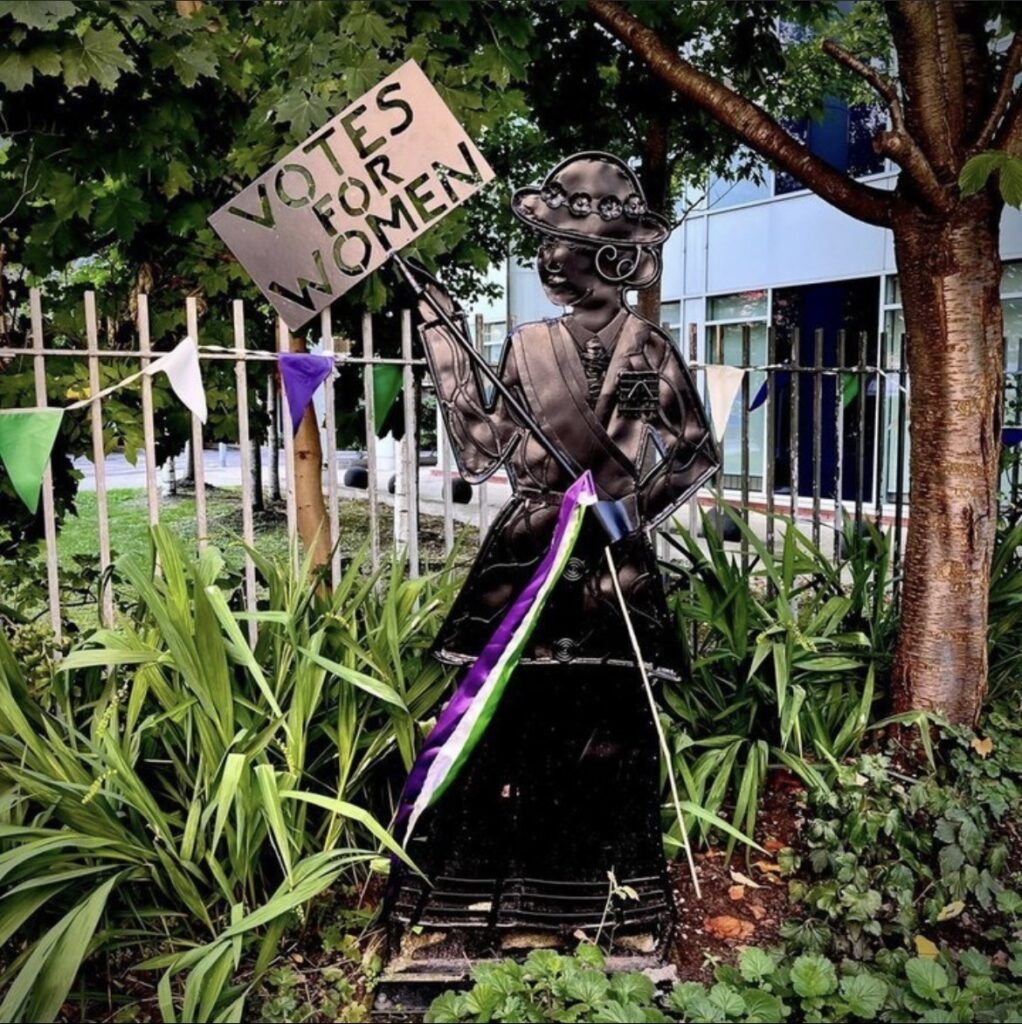By Megan Hall. Featured image: @manc_wanderer
We all have women in our life who have been a positive impact. To celebrate International Women’s Day this Friday 8 March, we’re reflecting on the women that have changed history in our city. From the suffragettes, to politics and peace keepers, Manchester has an impressive legacy of women.
Emmeline Pankhurst
Pankhurst was a leader of the very cause that made votes for women a reality. Born in Moss Side, she was never far off from the centre of the action. Founder of the Women’s Social and Political Union, the group were known for physical confrontations and acts of protest. This led to many behind bars, for smashing windows and assaulting police officers as part of their movement. Drastic measures were effective for the cause, as they planned to go on hunger-strike together during their prison sentences. Pankhurst founded the Women’s Franchise League, which advocated for suffrage for both married and unmarried women.
Margaret Ashton
Did you know that the first-ever female councillor was in Manchester? Withington-born Margret Ashton was the first woman elected to the 1908 Manchester City Council. Being involved in Manchester’s Public Health Committee, Ashton advocated for mother and baby clinics as well as free milk for babies and new mothers. Though she didn’t stop there, in 1914 Ashton founded the Manchester Babies Hospital.
Helen Pankhurst CBE
The great-great-granddaughter of Emmeline Pankhurst upholds her monumental and ground-breaking legacy as the Founder of GM4Women, a charity prioritising equality and diversity in Manchester. The road doesn’t stop there; Pankhurst set up the Centenary Action Group on the 100th anniversary of women successfully gaining the right to vote.
Erinma Bell MBE
After witnessing her friend get shot, Erinma Bell realised she needed to take action to tackle the crime issues in Manchester. Her work ensured a rapid reduction of gun crime, after ‘devoting her life to protecting young people from violent crime’, as stated in light of her Spirit of Manchester Award. As a touching tribute, her statue in Manchester Town Hall was crafted using melted confiscated guns.
Clara Walkden
As the first female police constable in Greater Manchester, Walkden made history in 1921, when she managed to gain a powerful career despite the high enforcement against women in the police force. Chief Constables and others in authority had a lack of belief in women’s potential as constables. It was a gradual liberation for the aspiring constables, as women have had limited roles in the police force since the 1880s. Women could only be Police Matrons, who supervised and escorted female prisoners. Meetings in 1916 urged the inclusion of women in the police force, and it was in 1921 that four police women were employed by the Manchester Police.
Keisha Thompson
Keisha is a figurehead in Manchester’s performance legacy, amplifying the sheer success that women in Manchester are achieving. As the first Mancunian Black woman to become CEO of Contact Theatre, she represented Contact’s 50th anniversary back in 2022. She is a beacon of inspiration to young people in the creative arts across Manchester and the North.






Leave a reply